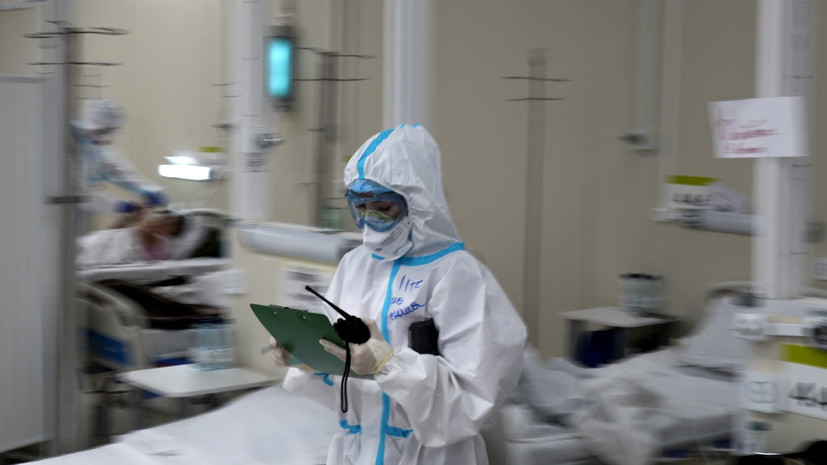In Russia, 33,899 new cases of coronavirus were detected over the past day, the maximum since November 27 (then the daily increase was 33,946).
22,920 people have fully recovered, 698 patients have died.
The largest number of new episodes was recorded in Moscow (8795), St. Petersburg (4382), Moscow (2626) and Nizhny Novgorod regions (881) and Krasnodar region (730).
In all other subjects of the Russian Federation, the number of new cases did not exceed 700.
The total number of coronavirus cases registered in the country has reached 10,899,411. Since the beginning of the pandemic, 9,925,855 people have recovered in Russia, and 323,376 patients have died from complications.
According to Rospotrebnadzor, more than 247.6 million laboratory tests for the presence of the SARS-CoV-2 coronavirus have been carried out in Russia.
More than 1 million people remain under medical supervision.
On the eve of the Prime Minister of the Russian Federation Mikhail Mishustin, during a meeting of the Presidium of the Coordinating Council under the Cabinet of Ministers for the fight against COVID-19, he announced that the Omicron strain had come to Russia.
As Deputy Prime Minister Tatyana Golikova noted during the meeting, in 42 regions of the country, as of the morning of January 18, 1682 cases of this SARS-CoV-2 mutation were detected.
Against this background, Svetlana Smetanina, chief freelance specialist in infectious diseases of the Moscow Health Department, spoke about the treatment at the first signs of this strain, she also pointed out the similarity of symptoms with SARS.
The specialist recommended drinking plenty of water, taking antipyretic and antiviral drugs.
“The onset of the disease is usually accompanied by intoxication and high fever, headache and muscle pain.
In this case, it is necessary to drink at least two liters of fluid per day, measure body temperature three times a day, ”TASS quotes her.
The specialist also asked to refrain from uncontrolled use of antibiotics: “I strongly recommend that everyone refuse self-medication with antibiotics.”
According to Smetanina, a doctor should be called if the temperature is above 38 degrees for more than three days.
Also on russian.rt.com Up to seven days: Golikova announced the reduction of the quarantine period for COVID-19
In turn, Deputy Director for Clinical Work of the Moscow Research Institute of Epidemiology and Microbiology named after Gabrichevsky Rospotrebnadzor, Doctor of Medical Sciences Tatyana Ruzhentsova, in an interview with Sputnik radio, recalled that vaccination significantly reduces the risk of contracting coronavirus.
“Preliminary data suggests that, nevertheless, this variant of the virus spreads primarily among the unvaccinated, therefore, of course, in order to have immunity, you need to be vaccinated – for those who have not yet been vaccinated, and for those who need to be revaccinated,” she said. she.
So far, it cannot be unequivocally stated that infection with “omicron” rarely leads to a severe form of COVID-19 disease, said Alexander Gintsburg, director of the Gamaleya Research Center for Epidemiology and Microbiology.
“According to the literature, less often, but these are data from European countries, where 60-80 percent are vaccinated, so it’s impossible to say for sure.
We still have few vaccinated people, so it is possible that the unvaccinated will have a severe course, ”RIA Novosti quotes him.
He pointed out that those vaccinated by Sputnik V would probably not be affected by this problem.
At the same time, the day before, on the air of the Russia 24 TV channel, Alexander Gintsburg said that this vaccine does not need to be modified for new SARS-CoV-2 mutations, including Omicron.
“But technologies that would make it possible to create a vaccine that will simultaneously protect against various COVID-19 pathogens that are far from themselves in terms of immunological properties, such technologies, of course, must be available,” explained the director of the Gamaleya National Research Center for Epidemiology and Microbiology, adding that work is underway in this direction.
According to Gunzburg, there are no scientific prerequisites for the coronavirus infection pandemic to end on the omicron: “It will be a very long time until population immunity is developed in the majority of the world's population.”
A similar view was expressed by the Director-General of the World Health Organization, Tedros Adhanom Ghebreyesus.
“This pandemic has not yet ended anywhere, and with the incredible global spread of the omicron, there is a possibility that new options will appear,” he said.
Since the beginning of the pandemic, more than 334 million cases have been recorded, most of all in the United States (67.6 million), India (37.9 million), Brazil (23.2 million), the UK (15.5 million) and France (14. 3 million).
This follows from data from Johns Hopkins University.
More than 5.5 million people worldwide have died from complications related to COVID-19.

